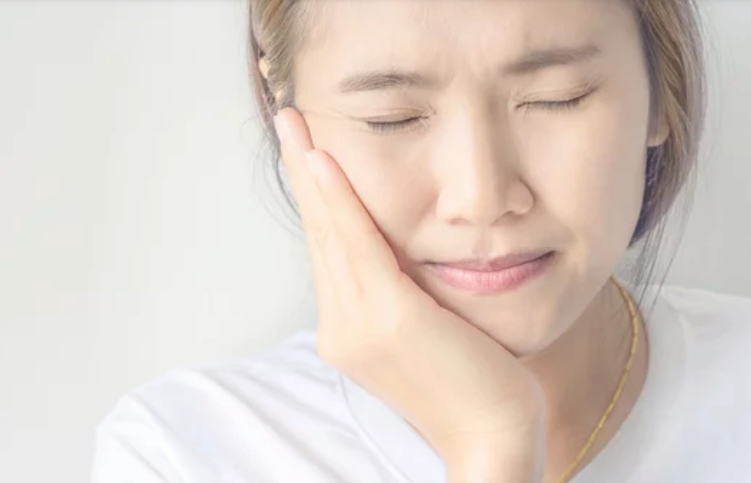
Getting braces is really not an easy task. While they can provide a lot of benefits, they are a medical treatment. With any medical treatment comes the possibility of side effects and potential discomfort during the treatment process.
It’s always a good idea to familiarize yourself with any potential side effects before you undergo treatment. As an adult, it is possible you experience different side effects than a youth or child that is in the midst of braces. Understanding any possible risks and what to expect might help you have a smoother process with your braces.
Understanding the potential side effects and what you can do can be important to the success of your treatment. It also might help you not end up miserable the entire time. Take a look at these common side effects of braces for adults and some tips to alleviate them.
The Most Common Side Effects of Braces for Adults
Let’s start with the most common side effects. These are the things you are most likely to experience. Most of them can be treated or simply will improve over time as your mouth adjusts to the changes.
You might experience more side effects shortly after visits and updates or when something occurs that causes irritation.
The following are the most common side effects noted.
Difficulty Chewing
Probably one of the most common sides effects that an adult with braces could experience is difficulty chewing or eating. Your teeth are going to be more sensitive, particularly when the braces or new or when you’ve recently had an adjustment. It takes some getting used to.
There are certainly some foods that are going to be much easier to eat and chew with braces than others. Most orthodontists will recommend avoiding foods that are very hard or very sticky. Something like an apple might be too hard to bite into but you might be able to cut it into small pieces to enjoy.
When you first get braces or you have a recent adjustment that makes eating more challenging, you can stick to softer foods as your mouth adjusts. Gradually work up to some of the harder foods. Of course, you still will want to remain careful about eating foods that are too hard.

Discomfort
It is very likely you will experience some discomfort that is directly related to your braces. This is almost expected and some people combat it with light pain killers like ibuprofen. The braces on your teeth are forcing your teeth to move and shift. It makes logical sense that you could experience some discomfort during the process.
In most cases, this discomfort is temporary. You experience it for a few days when you first get braces and then might experience it on occasion throughout treatment. It’s a sign that the braces are doing what they are supposed to be.
Discomfort usually is in the mouth. Your teeth might hurt or ache. However, it has been known to also cause a headache on occasion. Unless the pain becomes worse or never improves, you should be ok. However, you can discuss it with your orthodontist if you are concerned.

Irritation or Swelling
It’s possible that you will experience some swelling or irritation. If you think about braces, you have wire and brackets and bands all stuffed onto your teeth. Your lips and the interior of your mouth aren’t used to that.
The brackets could rub on your lips or cheek while your mouth is adjusting. It’s also possible that as your teeth move, the wire attached to them becomes too long and pokes you.
Most orthodontists recognize that these adjustments can cause irritation to your mouth. You will be provided with wax that can be used to help in these cases. You place the wax over the spot causing irritation.
If your wire is sharp and poking you in such a way that it’s causing bleeding, you need to go in and see the orthodontist. They can typically clip the wire and resolve the issue.
This is another side effect that is generally temporary and can be worked with to some extent.

Pain in the Jaw
Some adults experience a bit of pain in their jaws. The pain shouldn’t be excruciating. Most descriptions describe it as an ache that can be tolerated or managed with something like ibuprofen. Everyone is different though so keep that in mind.
The pain in your jaw is indicative of the movement of your teeth and possibly your jaw as well. Braces are restructuring the inside of your mouth. It’s quite likely that your jaw has to adjust and align differently to accommodate the changes.
If the pain seems severe or doesn’t improve, you should see your orthodontist.
Other Potential Side Effects
These side effects that we’ve mentioned are the most common. There are some other side effects that are a possibility. These are less common and generally related to lack of proper hygiene or perhaps underlying issues that take root.
Let’s look at some of these.
Allergic Reactions
It is possible to have an allergic reaction to one of the substances used in braces. If you know of any potential allergies, be sure to share these with your orthodontist prior to receiving braces. If something like latex could be a problem, there are alternatives to this.
Some people experience a reaction after the fact because they didn’t know. If you experience a reaction, you should reach out to your orthodontist right away.
Decay or Decalcification
It is possible that you could experience tooth decay or decalcification. In most cases, these side effects happen from occurring. It can be challenging to get used to brushing your teeth with braces in the way.
It is very important to be sure you are getting all around the brackets and your gums. Be sure you are flossing. Some people use a waterpik to help as well. The better your hygiene, the less likely you are to experience these.
Root Resorption

This unusual side effect is one you will hopefully not have to worry about but it is a possibility. This is very rare but it can occur. What happens is the root of your tooth shortens as the teeth move. In most cases, you never know. However, some patients have had their roots shorten on a single tooth by nearly half.
Most offices will watch for signs of this and track your progress with regular x-rays. This will give them a head’s up if there is any indication of a problem. This is more likely to happen with extended braces treatments over 3 years.
Tips to Combat Side Effects
Most of the potential side effects of braces for adults can be fought by being proactive. The good news is that the majority of these are short-lived and just take time to adjust to. Be on the lookout for side effects and always communicate with your orthodontist if there is any concern or your side effects fail to improve.
Here are a few simple tips that might help you combat any of the common side effects mentioned.
- Be mindful of the foods that you try to chew. Soft foods are better but if you eat something hard be sure to chop it very small. Avoid sticky foods as well.
- Take time to clean your teeth and gums well. Work methodically around your brackets and always floss. Use a waterpik for additional cleaning support if needed.
- Stay on top of dental care by keeping your appointments for orthodontist visits as well as routine dental cleaning appointments.
Final Thoughts
There are some potential side effects for adults with braces. Most of the side effects are quite similar to that of a child with braces. The good news is that the most common side effects are things that happen while your mouth adjusts to the braces or to adjustments made at routine appointments.
You can be proactive with some of the tips we’ve shared here. As always, remember to reach out to your orthodontist with additional concerns.

